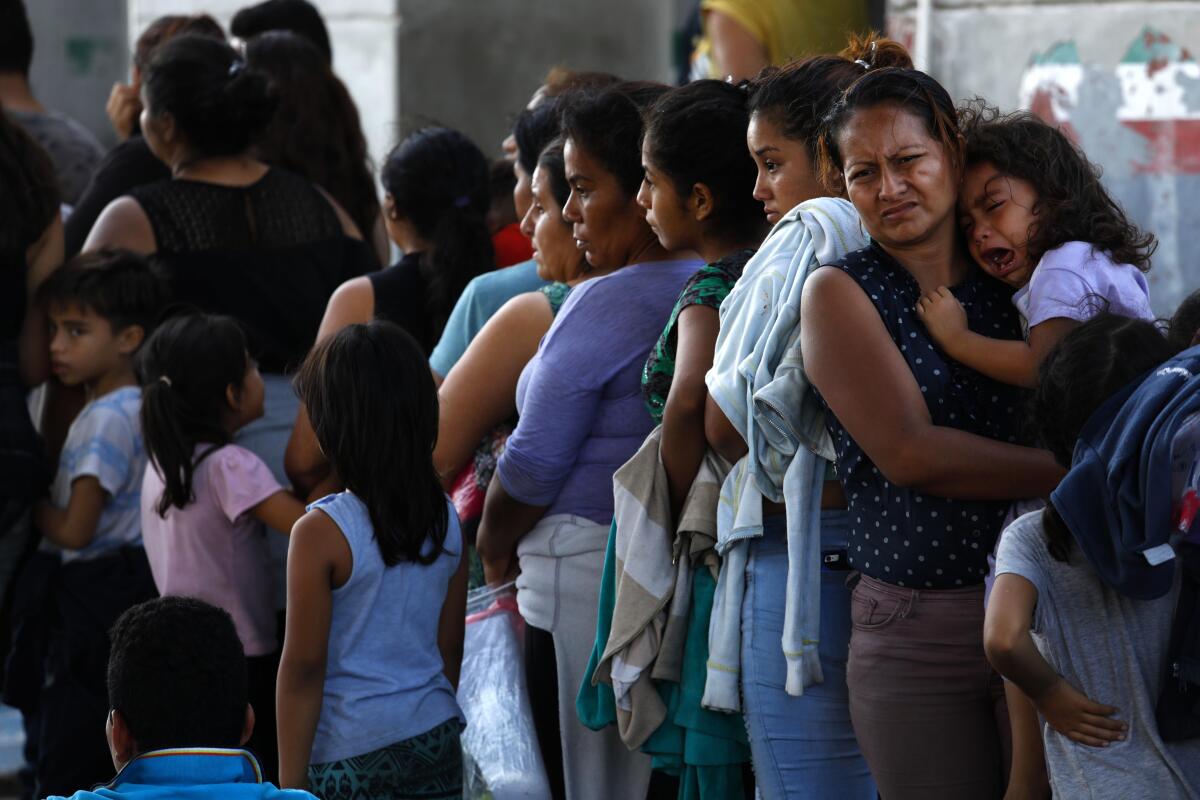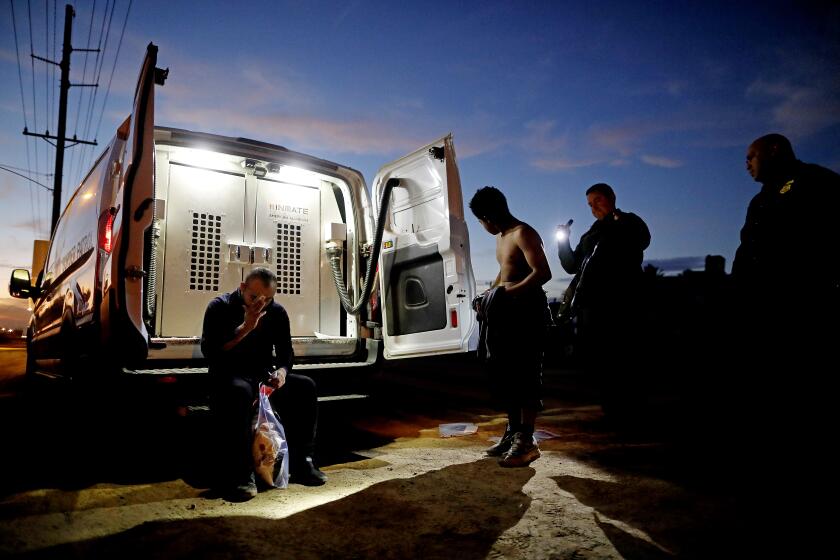U.S. to send asylum seekers to Honduras, bypassing American asylum

- Share via
The U.S. is preparing to send asylum seekers to Honduras, even if they are not from the Central American country, and effectively end their chances of seeking asylum in the United States, according to documents obtained by the Los Angeles Times.
Under an agreement signed in New York on Sept. 25 by Kevin McAleenan, at the time the secretary of Homeland Security, and Honduras’ foreign minister, María Dolores Agüero, adults and families seeking asylum at the U.S.-Mexico border could be sent to Honduras without the chance to seek asylum in the U.S.
A source provided a copy of the agreement to The Times this week.
Earlier this year, the administration reached a similar agreement with Guatemala to take asylum seekers at the U.S.-Mexico border, even if they were not Guatemalan.
Since the Guatemala agreement took effect on Nov. 22, U.S. officials have forcibly sent a number of Honduran adults to Guatemala, and last week, they began sending some Honduran families, according to communications obtained by The Times and several U.S. Citizenship and Immigration Services officials.
The Trump administration wants to send Central Americans seeking asylum to Honduras, restricting them from applying at the US-Mexico border, according to a document obtained by the Los Angeles Times.
What’s significant about the Honduras agreement is that it is the first to explicitly state that if Honduras or another country rejects the individuals’ asylum claims, they won’t get another chance to apply in the United States, according to the text. Previously, the administration had suggested that if, say, a Guatemalan were forcibly sent to Honduras and denied asylum there, she might get another chance in the United States. The text of the U.S.-Honduras agreement makes clear that is not the case.
The new agreement is part of a broader effort to restrict asylum-seeking at the southern border. The Trump administration has reached similar agreements with El Salvador and Guatemala, obligating them to take other Central Americans who reach the U.S. border. The administration described the agreements as an “effort to share the distribution of hundreds of thousands of asylum claims.”
Mark Krikorian, executive director of the Center for Immigration Studies, which advocates for stricter limits on immigration, called the latest agreement “pretty significant.”
“It’s an important part of a broad effort to return asylum to the narrow use for which it was intended,” he said.
A spokesman for the Department of Homeland Security did not immediately respond to a request for comment on Monday.
But a member of Congress condemned the move.
Calling Honduras “a narco-state that is every bit as unprepared to participate as the other partner nations of Guatemala and El Salvador,” Rep. Norma Torres (D-Pomona), the only member of Congress born in Guatemala, said, “These agreements are anything but safe – the Trump administration is rejecting our moral obligations and shipping asylum seekers to the very same danger zones that they are fleeing.”
Where the candidates in the December Democratic debate stand on immigration issues.
She added: “Not only does this endanger the lives of those most in need, but it also telegraphs to the world a moral bankruptcy that is completely at odds with American values.”
Advocates for immigrants have condemned the agreements, saying they make it nearly impossible for Central Americans to seek asylum in the U.S.
“The administration is seeking to end asylum at the southern border,” said Aaron Reichlin-Melnick, policy counsel at the American Immigration Council, a nonprofit group that opposed the Trump administration’s highly restrictive policies.
Reichlin-Melnick says he fears the administration will use the latest agreement to start sending Guatemalan asylum seekers to Honduras as soon as next month.
The agreements were signed after the Trump administration announced a new rule in July deeming ineligible for protection in the U.S. virtually any migrant who passes through another country before reaching the U.S.-Mexico border and does not seek asylum there first. That rule currently faces legal challenges.
More to Read
Sign up for Essential California
The most important California stories and recommendations in your inbox every morning.
You may occasionally receive promotional content from the Los Angeles Times.













